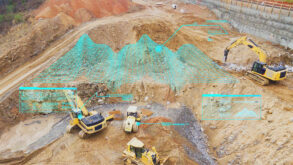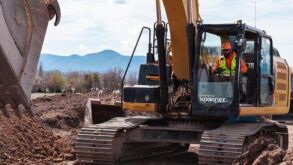
This is a sponsored article from Xpanner.
The US construction industry is experiencing growth like we’ve never seen before. With the private sector launching numerous projects worth >$1 billion and the US government committing more than $1 trillion to improve aging infrastructure, a steady stream of large projects will continue for at least the next decade. In addition, the industry is also being buoyed by the renewable energy sector which is pushing to quickly grow its installed base, with solar on pace to increase capacity 745 percent in 8 years, expanding from 73 GW to 617 GW. Infrastructure and energy are powerful drivers for this renewed boom for construction.
Clearly, a massive opportunity has surfaced for individuals and businesses within the construction industry, but the question remains: Is the industry ready?
Headwinds
Standing at the start of this once-in-a-generation opportunity, the industry faces a few tough challenges. For starters, according to the National Center for Construction Education and Research, 41 percent of current construction workers in the US will retire by 2031. That’s a massive amount of experience the industry will soon lose.
At the same time, new workers to service the coming demand are nowhere to be seen. Estimates by Associated Builders and Contractors indicate that 600,000 construction positions went unfilled in 2022, with similar shortages in 2023. This, paired with additional labor demands coming from renewables, means that the industry must find over 1 million new workers each year in order to execute projects in the pipeline.
Implications
With large waves of workers exiting and few new workers joining the ranks, the implications for the future are clear: decreased levels of experience translating into lower quality output completed at a slower pace, all at increased wages. Of course, as with all things in times of scarcity, the industry will likely see a flight to quality. If so, projects lucky enough to secure experienced contractors and workers will succeed, though at significantly higher costs to attract qualified, capable talent amidst labor wars, while others will struggle with off-spec production, rework, delays and overruns. All of this could become a not-so-pretty picture for everyone from sponsors to developers to contractors.
What to do?
In the face of this massive loss of experience, the construction industry must do two things. First, the remaining, less-experienced operators must be up-skilled to perform at quality and speed levels demanded by site managers. Second, young talent must be drawn into the industry, not only to replenish the ranks of the dwindling workforce, but to set up for modernizing the way the industry works. If the construction industry fails to do either of these, it risks falling off the proverbial cliff, just when construction demand is so high.
 How can the construction industry accomplish these imperatives? Technology – specifically, automation and robotics. The tech exists today to enable relatively inexperienced workers to perform like veteran operators, even without the deep experience of those experts. Automation and robotics can be the draw into the industry for Millennials and Gen Z, positioning labor opportunities as ways for them to deploy their digital savviness to ramp up rapidly at the controls of tomorrow’s machines. Automation can even help to stretch the careers of retiring veterans by automating the boring, repetitive tasks, allowing these experts to focus their remaining time on high value projects and, more importantly, to lend their wisdom and experience to build better automation and robotics.
How can the construction industry accomplish these imperatives? Technology – specifically, automation and robotics. The tech exists today to enable relatively inexperienced workers to perform like veteran operators, even without the deep experience of those experts. Automation and robotics can be the draw into the industry for Millennials and Gen Z, positioning labor opportunities as ways for them to deploy their digital savviness to ramp up rapidly at the controls of tomorrow’s machines. Automation can even help to stretch the careers of retiring veterans by automating the boring, repetitive tasks, allowing these experts to focus their remaining time on high value projects and, more importantly, to lend their wisdom and experience to build better automation and robotics.
In the face of industry-halting labor shortages and soon-to-come loss of expertise, automation and robotics can no longer be viewed as unwelcome replacements for hard-working laborers. Instead, these rapidly advancing technologies are now necessary solutions for an industry that must operate without millions of workers it cannot find. Consequently, those who embrace automation and robotics sooner rather than later will reap the benefits, enabling themselves to consistently deliver projects on-time and to-spec, and to build reputations that will bring more projects to their doorsteps, despite an industry facing its new normal.
Jae Choi is COO and Henri Lee is CEO at Xpanner, a startup delivering automation and robotics to earthworks and solar farm construction.


Discussion
Be the first to leave a comment.
You must be a member of the BuiltWorlds community to join the discussion.